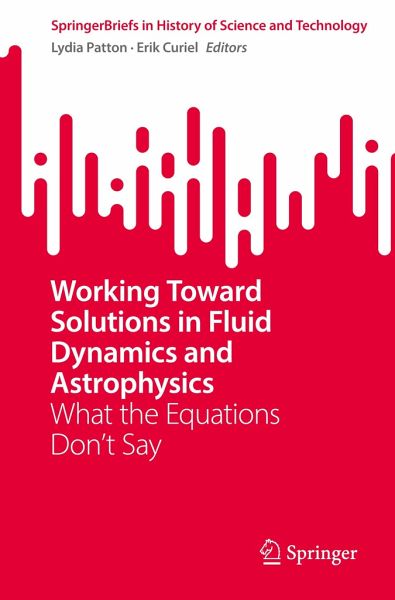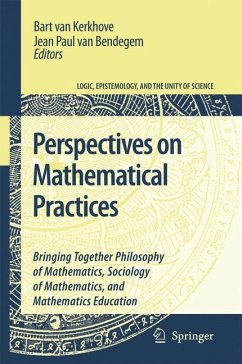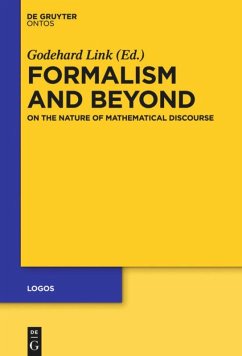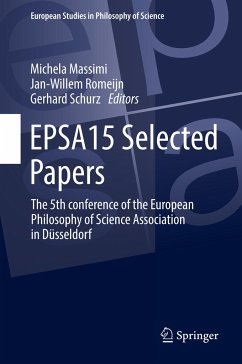
Working Toward Solutions in Fluid Dynamics and Astrophysics
What the Equations Don't Say
Herausgegeben: Patton, Lydia; Curiel, Erik

PAYBACK Punkte
19 °P sammeln!
This book focuses on continuing the long-standing productive dialogue between physical science and the philosophy of science. Researchers and readers who want to keep up to date on front-line scientific research in fluid mechanics and gravitational wave astrophysics will find timely and well-informed analyses of this scientific research and its philosophical significance. These exciting frontiers of research pose deep scientific problems, and raise key questions in the philosophy of science related to scientific explanation and understanding, theory change and assessment, measurement, interpre...
This book focuses on continuing the long-standing productive dialogue between physical science and the philosophy of science. Researchers and readers who want to keep up to date on front-line scientific research in fluid mechanics and gravitational wave astrophysics will find timely and well-informed analyses of this scientific research and its philosophical significance. These exciting frontiers of research pose deep scientific problems, and raise key questions in the philosophy of science related to scientific explanation and understanding, theory change and assessment, measurement, interpretation, realism, and modeling. The audience of the book includes philosophers of science, philosophers of mathematics, scientists with philosophical interests, and students in philosophy, history, mathematics, and science. Anyone who is interested in the methods and philosophical questions behind the recent exciting work in physics discussed here will profit from reading this book.














